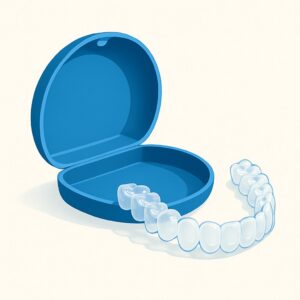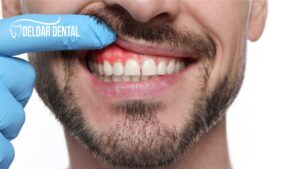Health-related issues are known to cause stress and anxiety, and Temporomandibular Joint Disorder is no different. Any illness, which causes prolonged periods of acute pain can push anyone beyond his or her limits. That is why it is important to seek help before additional complications arise like TMJD and anxiety.
What is Temporomandibular Joint Disorder (TMJD)?
MJD, as it is commonly called, occurs when a patient has chronic pain in the joint that is located towards the back of the skull and jaw.
People who grapple with this illness sometimes develop anxiety.
Dealing with TMJD and Anxiety
No one likes to feel unbalanced or out of control.
When your body goes through sickness and seems unresponsive to treatment, this can cause patients to stress out.
That is why TMJ-induced anxiety is common with people dealing with shoulder, neck, or head pain. Some even have jaw pain and stress, tinnitus, clicking, headaches or dizziness as well.
These then causes the person to have trouble sleeping, problems concentrating, become lethargic or weak and tense.
It is possible that you have seen others grinding their teeth or clenching their jaws when they are stressed. The reality is that TMJ can be caused by persistent stress and anxiety and the reverse is true as well.
How to Cope With TMJ-induced Anxiety
Even if you have a genetic predisposition to anxiety and you have Temporomandibular Joint Disorder, adopting the right coping skills can help to limit the anxiety.
These same coping skills will help you to mitigate the occurrence of panic attacks as well, which affect some people battling anxiety issues.
Stopping the recurrence of these attacks is important because their frequency can increase if you have had even one episode.
Try these Jaw Exercises
Dr. Deldar has compiled a few helpful TMJ exercises that can help release some tension.
TMJ Massage
This is one of the treatments prescribed by a specialist. The masseuse is able to use muscular release techniques to alleviate the pain and tension in your jaw.
Get Adequate Rest
The aim is to minimize the amount of stress that you are experiencing and one of the best ways to do this is by not missing sleep. During sleep, your body is able to rebuild and rejuvenate itself, naturally.
However, rest also extends to not using your jaw as much. That means no clenching, less chewing and avoiding long or frequent conversations.
Also, try not to sleep on the injured side of your face.
Treat Your TMJD and Anxiety Quickly
Do not let the pain, migraines, and anxiety interrupt the quality of your life.
There are alternatives available to treat chronic pain issues and TMJ-induced anxiety. You do not have to settle with neurological symptoms such as impaired cognition, involuntary muscle movements, tingling in the fingers and numbness in the arms or legs.
You will have a fighting chance to overcome TMJ with the help of any of our skilled medical professionals. They offer innovative neuromuscular solutions and have years of experience treating this disorder and other prominent illnesses.
Just contact us for an appointment or call us at 317-208-0000.




